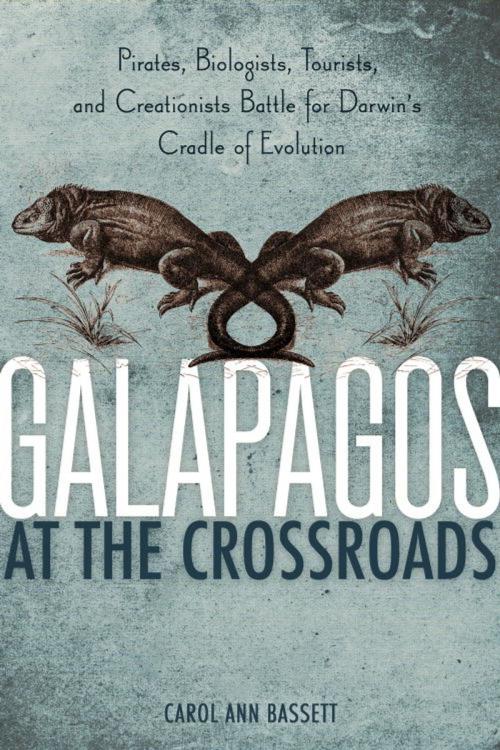Galapagos at the Crossroads
Pirates, Biologists, Tourists, and Creationists Battle for Darwin's Cradle of Evolution
Nonfiction, Travel, Caribbean & Latin America, South America, Science & Nature, Nature| Author: | Carol Ann Bassett | ISBN: | 9781426204357 |
| Publisher: | National Geographic Society | Publication: | May 19, 2009 |
| Imprint: | National Geographic | Language: | English |
| Author: | Carol Ann Bassett |
| ISBN: | 9781426204357 |
| Publisher: | National Geographic Society |
| Publication: | May 19, 2009 |
| Imprint: | National Geographic |
| Language: | English |
As eloquent as it is alarming, Carol Ann Bassett’s portrait of today’s Galápagos depicts a deadly collision of economics, politics, and the environment that may destroy one of the world’s last Edens.
For millions, the Galápagos Islands represent nature at its most unspoiled, an inviolate place famed for its rare flora and fauna. But soon today’s 30,000 human residents could surpass 50,000. Add invasive species, floods of tourists, and unresolved conflicts between Ecuadorian laws and local concerns, and it’s easy to see why the Galápagos were recently added to UNESCO’s World Heritage in Danger list.
Each chapter in this provocative, perceptive book focuses on a specific person or group with a stake in the Galápagos’ natural resources—from tour companies whose activities are often illegal and not always green, to creationist guides who lead tours with no mention of evolution, from fishermen up in arms over lobster quotas, to modern-day pirates who poach endangered marine species.
Bassett presents a perspective as readable as it is sensible. Told with wit, passion, and grace, the Galápagos story serves as a miniature model of Earth itself, a perfect example of how an environment can be destroyed-- and what is being done to preserve these islands before it's too late.
As eloquent as it is alarming, Carol Ann Bassett’s portrait of today’s Galápagos depicts a deadly collision of economics, politics, and the environment that may destroy one of the world’s last Edens.
For millions, the Galápagos Islands represent nature at its most unspoiled, an inviolate place famed for its rare flora and fauna. But soon today’s 30,000 human residents could surpass 50,000. Add invasive species, floods of tourists, and unresolved conflicts between Ecuadorian laws and local concerns, and it’s easy to see why the Galápagos were recently added to UNESCO’s World Heritage in Danger list.
Each chapter in this provocative, perceptive book focuses on a specific person or group with a stake in the Galápagos’ natural resources—from tour companies whose activities are often illegal and not always green, to creationist guides who lead tours with no mention of evolution, from fishermen up in arms over lobster quotas, to modern-day pirates who poach endangered marine species.
Bassett presents a perspective as readable as it is sensible. Told with wit, passion, and grace, the Galápagos story serves as a miniature model of Earth itself, a perfect example of how an environment can be destroyed-- and what is being done to preserve these islands before it's too late.















